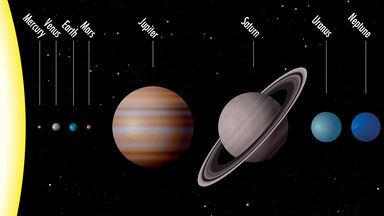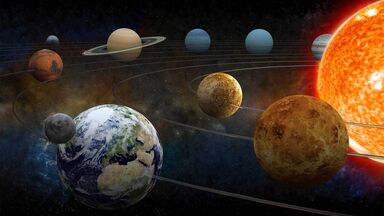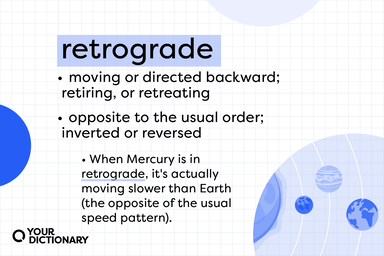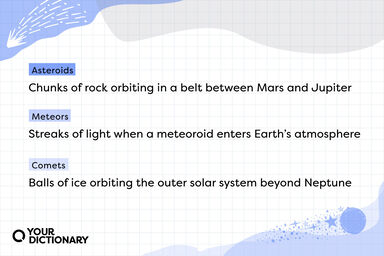Planet Definition
Other Word Forms of Planet
Noun
Origin of Planet
-
From Middle English planete, from Old English planÄ“ta (“planet, chasuble"), from Latin planeta, planetes, from Ancient Greek πλανήτης (planÄ“tÄ“s) variant of πλάνης (planÄ“s, “wanderer, planet"), from Ancient Greek πλανάω (planáō, “wander about, stray"), of unknown origin. Perhaps from a Proto-Indo-European *pel- (“to wander, roam"), cognate with Latin pālor (“wander about, stray"), Old Norse flana (“to rush about"), Norwegian flanta (“to wander about"). More at flaunt.
From Wiktionary
-
Middle English from Old French planete from Late Latin planēta from Greek planētēs variant of planēs planēt- from planāsthai to wander pelə-2 in Indo-European roots
From American Heritage Dictionary of the English Language, 5th Edition
Find Similar Words
Find similar words to planet using the buttons below.





